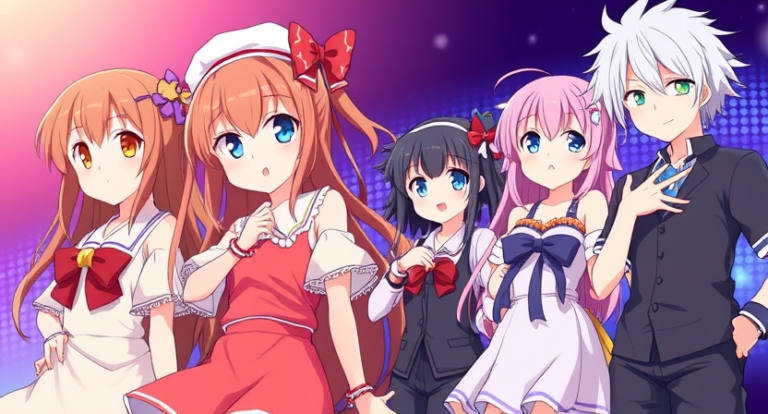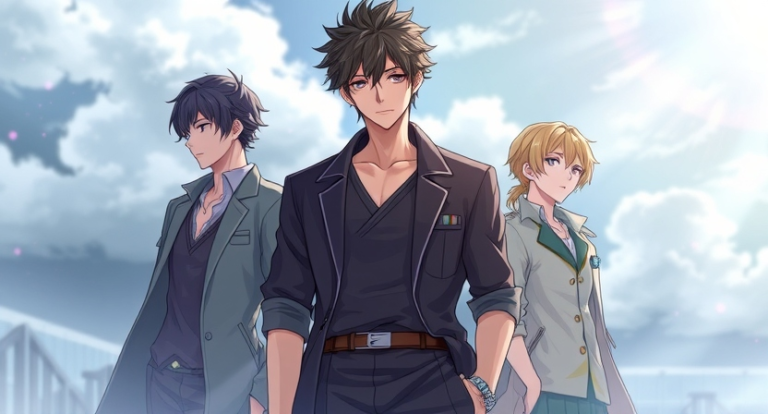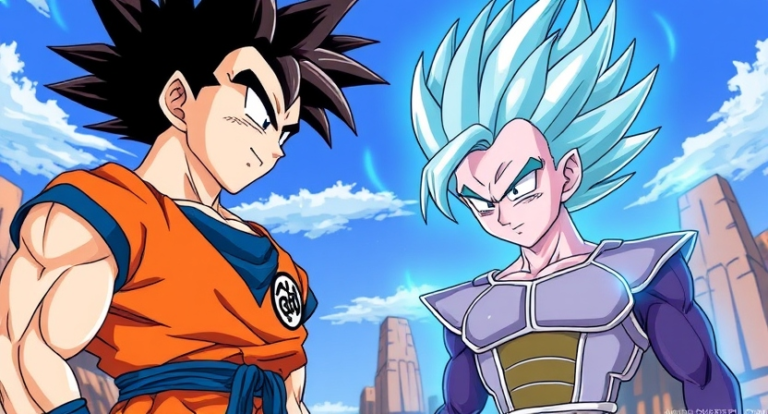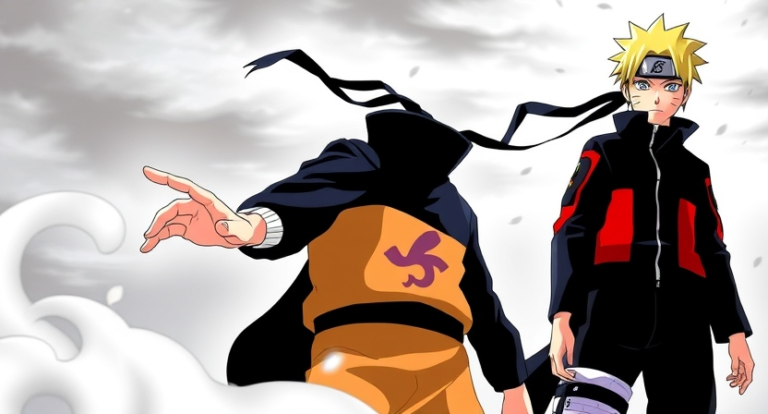These top 5 anime is more than just entertainment it’s an art form that can convey complex philosophical questions, challenge societal norms, and evoke deep personal introspection. The medium offers creators a unique canvas to explore controversial issues and profound themes, using imaginative worlds to tackle real-life struggles.
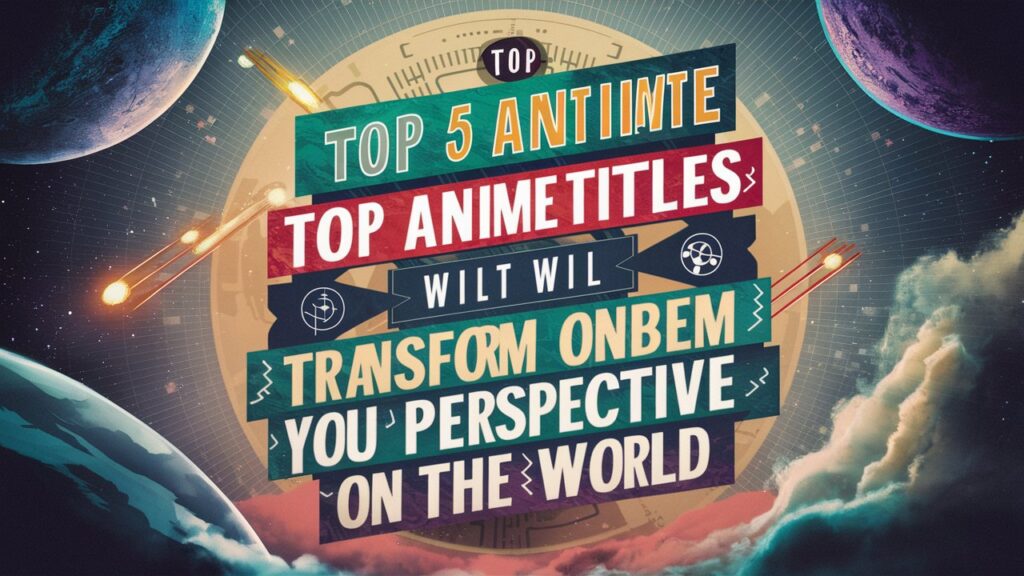
Many anime series examine themes that inspire viewers to question their beliefs, making anime a powerful medium for reshaping perspectives.
Why Anime Can Change Perspectives
Anime and Cultural Narratives
Anime, as a product of Japanese culture, often intertwines cultural beliefs, spiritual ideas, and moral concepts with universal themes. This blend gives viewers from around the world insight into Japan’s unique perspectives on topics like duty, honor, and community, while also touching on globally relatable issues like love, loss, and resilience.
Impact of Storytelling on Viewers
Well-crafted stories have the ability to draw people in emotionally, making them receptive to new ideas and different viewpoints. Anime excels at telling such stories, often portraying characters grappling with moral dilemmas, ethical challenges, and intense personal growth. These narrative arcs allow viewers to experience complex emotions alongside the characters, sparking empathy and deep contemplation.
Top 5 Life-Changing Anime
Let’s delve into five anime that have redefined viewers’ perspectives, sparking discussions about morality, identity, and the human experience.
1. Death Note: Moral Ambiguity and the Nature of Justice
Death Note follows the story of Light Yagami, a brilliant high school student who stumbles upon a mysterious notebook that grants him the power to kill anyone whose name he writes in it. Light quickly decides to use this power to rid the world of criminals, becoming the vigilante “Kira.” However, his actions draw the attention of law enforcement, particularly the enigmatic detective “L,” setting up a deadly game of wits and ethics.

This anime encourages viewers to reflect on the gray areas of justice and the consequences of absolute power, making it a thought-provoking experience that lingers long after the final episode.
2. Neon Genesis Evangelion: Existentialism and Human Complexity
Neon Genesis Evangelion centers on Shinji Ikari, a reluctant teenage pilot of a giant bio-mechanical robot known as an “Evangelion.” He is part of a group tasked with defending Earth from mysterious, monstrous beings known as “Angels.” However, as the series progresses, the storyline shifts from a simple battle for survival to an intense exploration of personal trauma, identity, and the human psyche.
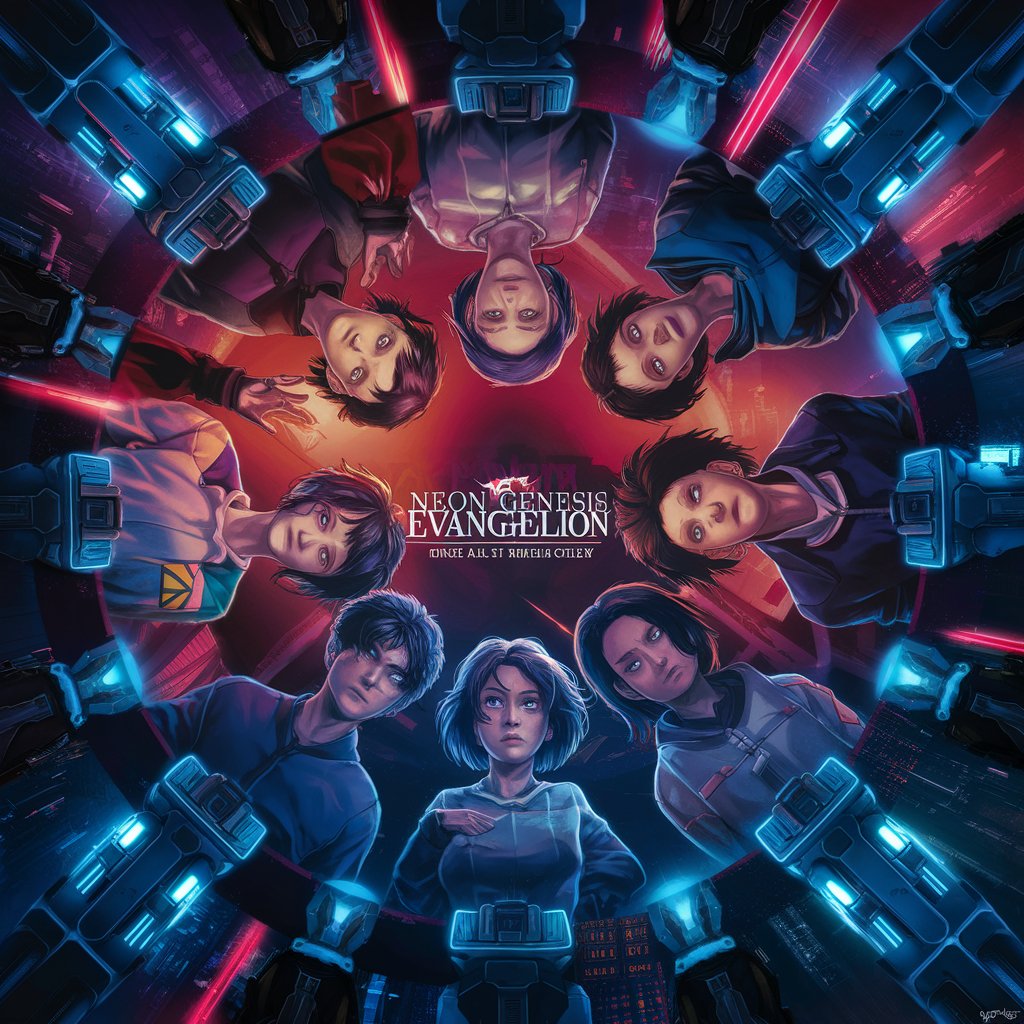
For many, Neon Genesis Evangelion serves as an emotional and philosophical journey, shedding light on the complexities of the human mind and the weight of existence.
3. Attack on Titan: Human Conflict and Freedom
In Attack on Titan, humanity is on the brink of extinction, trapped within massive walls that protect them from giant, man-eating creatures called Titans. The story follows Eren Yeager and his friends as they join the military in a bid to fight back, uncovering shocking secrets about the Titans and humanity itself.
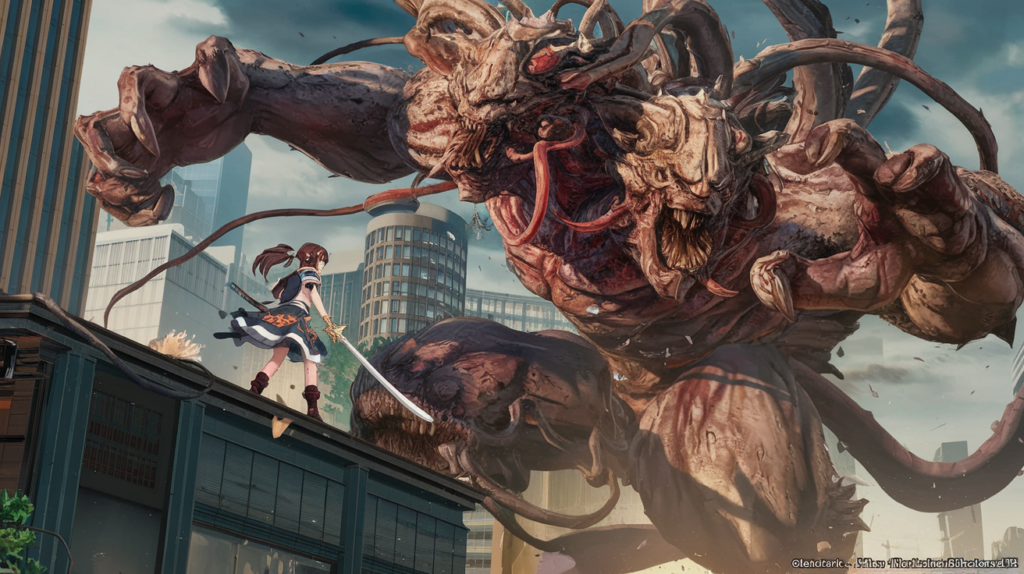
At face value, Attack on Titan is a gripping tale of survival, but it also raises questions about freedom, oppression, and the cost of security. The series examines how far individuals and societies are willing to go to protect themselves and the price they’re willing to pay for freedom. Characters are forced to confront their beliefs about loyalty, justice, and the consequences of their actions, which often blur the lines between right and wrong.
4. Fullmetal Alchemist: Brotherhood: Ethics and the Price of Knowledge
Fullmetal Alchemist: Brotherhood follows brothers Edward and Alphonse Elric, who attempt forbidden alchemy to bring their mother back to life, resulting in a tragic accident that costs Edward an arm and a leg and leaves Alphonse’s soul bound to a suit of armor. The brothers set out on a journey to find the Philosopher’s Stone, hoping to regain their original bodies while encountering corrupt systems, morally dubious figures, and haunting secrets.
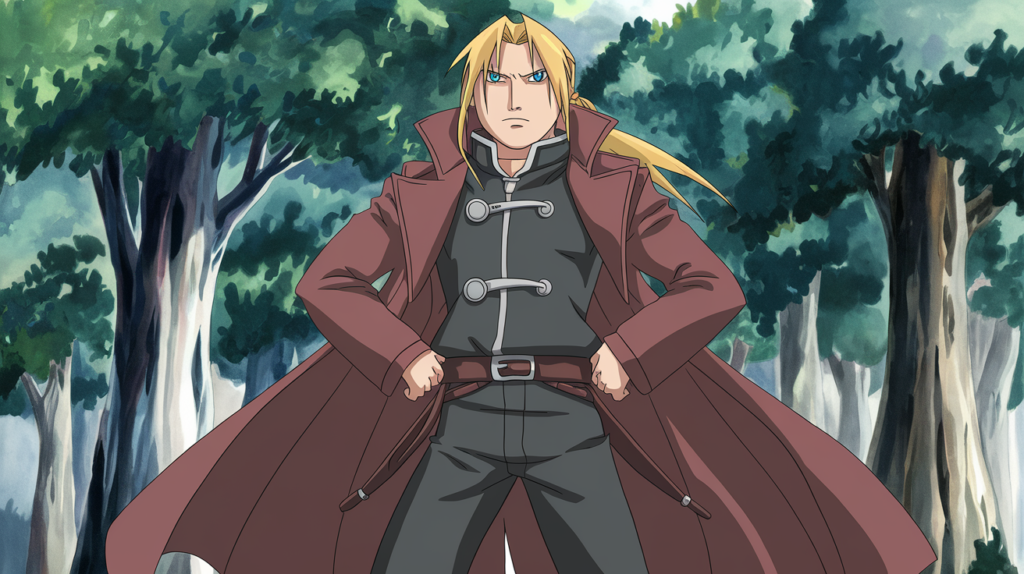
Through Fullmetal Alchemist: Brotherhood, viewers gain insight into the complexity of morality and the importance of empathy in decision-making, encouraging a deeper understanding of ethical dilemmas.
5. Your Lie in April: Loss, Healing, and the Power of Art
Your Lie in April tells the story of Kousei Arima, a piano prodigy who loses his ability to hear the sound of his piano after his mother’s death. When he meets a spirited violinist named Kaori, she brings color and music back into his life, pushing him to confront his trauma and reconnect with his passion for music.
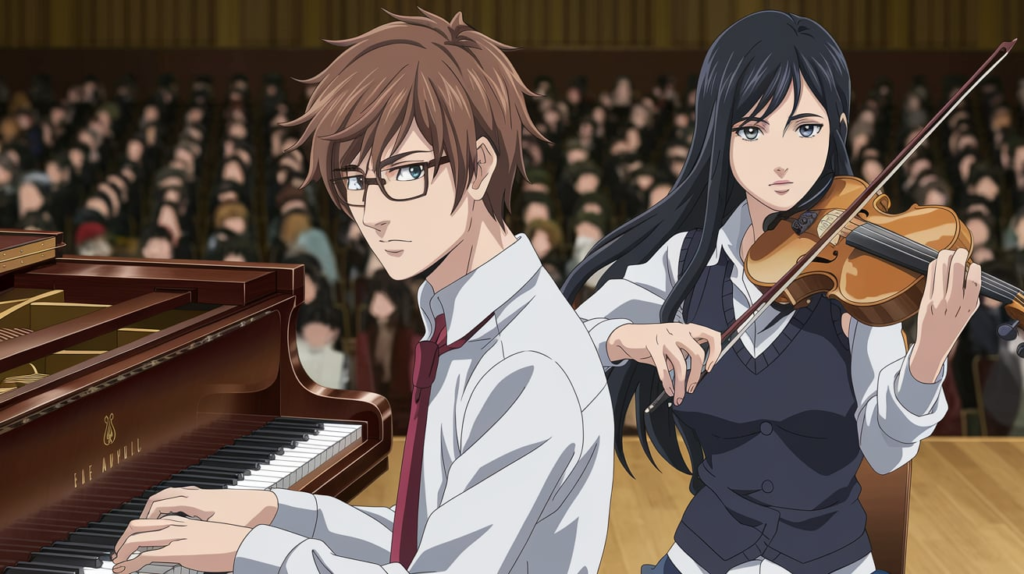
This anime encourages viewers to reflect on the power of human connection and the transformative nature of art, reminding us that healing is a process of growth and acceptance.
How These Anime Transform Viewer’s Perspectives
Unique Animation as a Storytelling Tool
Anime combines visual art and storytelling in a way that is both striking and immersive. Through creative animation techniques and symbolic visuals, these anime evoke deep emotional responses, helping viewers connect with the characters’ experiences on a personal level. The unique animation styles also convey abstract ideas and intense emotions in ways that traditional media cannot, making anime a truly unique vehicle for challenging perspectives.

Emotionally Resonant Narratives
What sets these anime apart is their ability to delve into complex emotions and ethical dilemmas. They create characters who struggle with real-world issues, mirroring our own experiences and prompting us to reconsider our viewpoints. This emotional depth encourages viewers to think critically about life’s complexities and empathize with others, fostering personal growth and awareness.
Conclusion: Embracing New Perspectives Through Anime
Anime has the remarkable ability to shape how we perceive the world. Through vivid storytelling, complex themes, and relatable characters, these five anime titles offer more than just entertainment they encourage viewers to question their values, confront their fears, and reflect on the human condition.
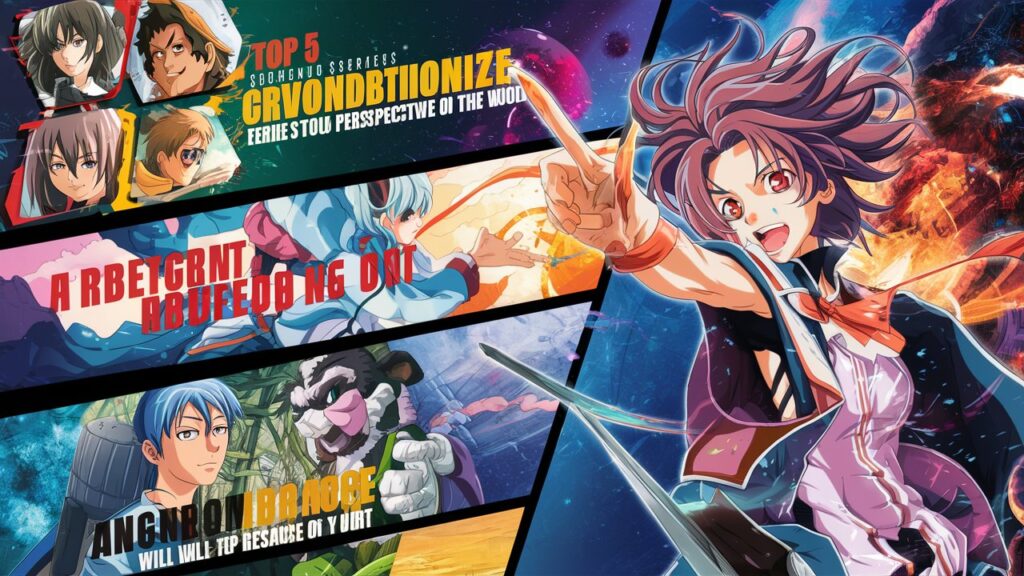
Whether it’s contemplating morality in Death Note, understanding resilience in Your Lie in April, or pondering freedom in Attack on Titan, these series resonate on a profound level, inspiring new ways of thinking about life’s most challenging questions.
FAQs On Top 5 Anime
Can anime really change someone’s worldview?
Yes, anime can influence perspectives by addressing complex, relatable themes. When viewers connect emotionally to a story, they’re more open to re-evaluating their beliefs and values.
Is anime only for young audiences?
Not at all. Many anime tackle mature themes suitable for all ages. Series like Neon Genesis Evangelion and Death Note explore adult concepts like existentialism and morality.
Why do people find anime so impactful?
Anime combines powerful storytelling with unique visuals, creating emotionally resonant experiences. Characters often face intense struggles that mirror real-life issues, making viewers reflect deeply on similar themes.
Which anime should I start with if I want something thought-provoking?
Death Note and Fullmetal Alchemist: Brotherhood are excellent starting points. Both series delve into moral ambiguity and ethical choices, making them great for new viewers seeking deeper themes.
Are there other anime with transformative themes?
Absolutely! Other impactful anime include Steins;Gate, Tokyo Ghoul, and A Silent Voice. Each series explores unique philosophical and emotional topics that leave a lasting impact.

